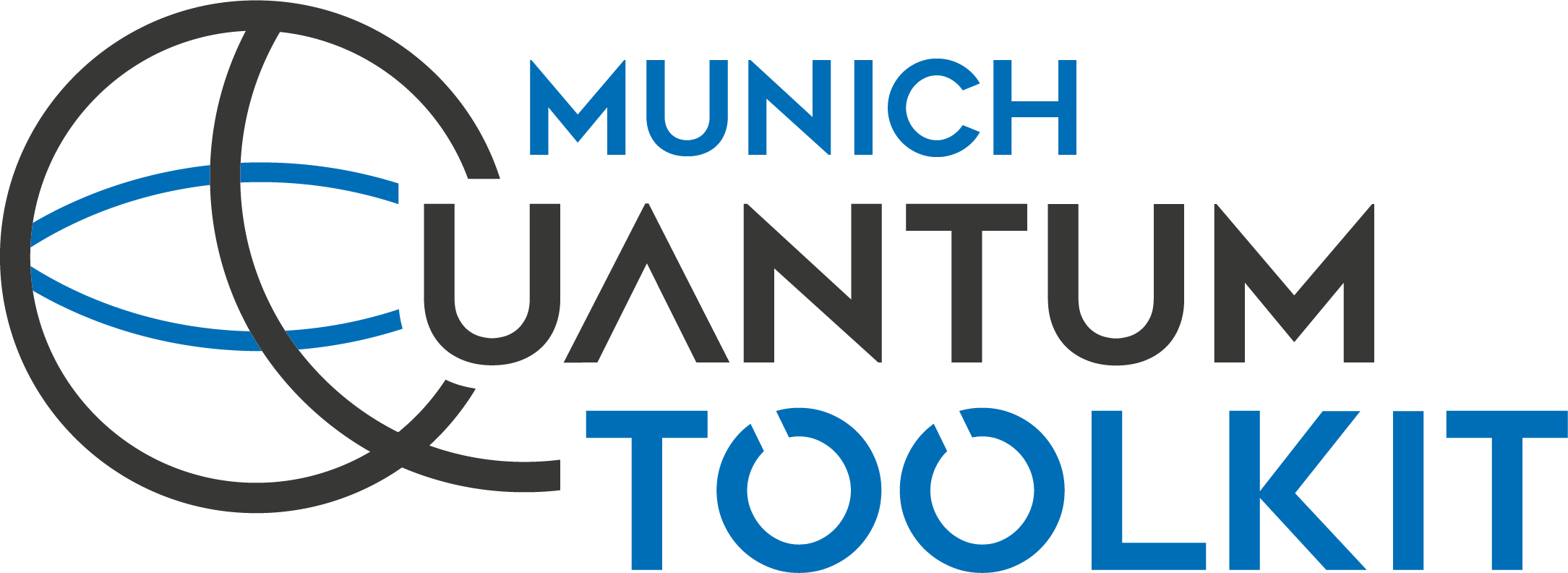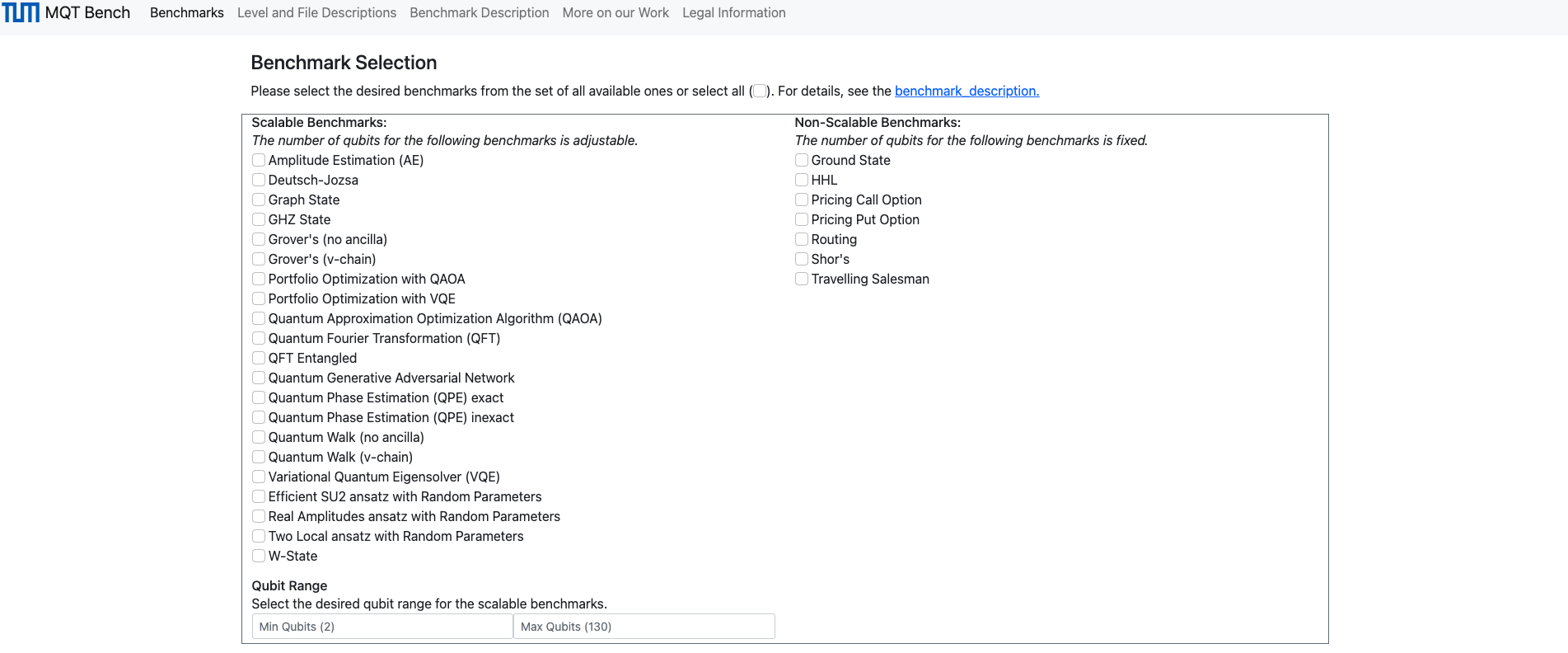MQT Bench is a quantum circuit benchmark suite with cross-level support, i.e., providing the same benchmark algorithms for different abstraction levels throughout the quantum computing software stack. MQT Bench is part of the Munich Quantum Toolkit (MQT) developed by the Chair for Design Automation at the Technical University of Munich and is hosted at https://www.cda.cit.tum.de/mqtbench/.
If you have any questions, feel free to create a discussion or an issue on GitHub.
mqt-bench is available via PyPI.
(venv) $ pip install mqt.benchThe following code gives an example on the usage:
from mqt.bench import get_benchmark
# get a benchmark circuit on algorithmic level representing the GHZ state with 5 qubits
qc_algorithmic_level = get_benchmark(benchmark_name="ghz", level="alg", circuit_size=5)
# draw the circuit
print(qc_algorithmic_level.draw())Detailed documentation and examples are available at ReadTheDocs.
MQT Bench is also available as a PennyLane dataset.
In case you are using MQT Bench in your work, we would be thankful if you referred to it by citing the following publication:
@article{quetschlich2023mqtbench,
title = {{{MQT Bench}}: {Benchmarking Software and Design Automation Tools for Quantum Computing}},
shorttitle = {{MQT Bench}},
journal = {{Quantum}},
author = {Quetschlich, Nils and Burgholzer, Lukas and Wille, Robert},
year = {2023},
doi = {10.22331/q-2023-07-20-1062},
eprint = {2204.13719},
primaryclass = {quant-ph},
archiveprefix = {arxiv},
note = {{{MQT Bench}} is available at \url{https://www.cda.cit.tum.de/mqtbench/}},
}This project received funding from the European Research Council (ERC) under the European Union's Horizon 2020 research and innovation program (grant agreement No. 101001318), was part of the Munich Quantum Valley, which is supported by the Bavarian state government with funds from the Hightech Agenda Bayern Plus, and has been supported by the BMWK on the basis of a decision by the German Bundestag through project QuaST, as well as by the BMK, BMDW, and the State of Upper Austria in the frame of the COMET program (managed by the FFG).









